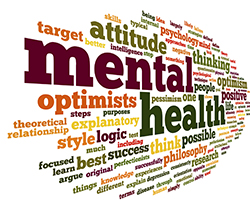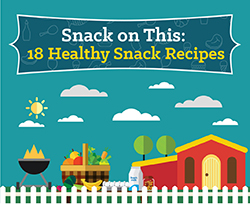“Human beings are social creatures. We are social not just in the trivial sense that we like company, and not just in the obvious sense that we each depend on others. We are social in a more elemental way: simply to exist as a normal human being requires interaction with other people.” - Atul Gawande, bestselling author, surgeon, and public health researcher
Recent posts by Nicole Fallowfield
4 min read
Social Wellbeing: The Importance Of Personal Relationships
By Nicole Fallowfield on Sep 23, 2015 6:30:00 AM
Topics: Employee Benefits Health Risk Management
2 min read
Career Wellbeing: Why You Shouldn’t Underestimate It
By Nicole Fallowfield on Aug 12, 2015 6:30:00 AM
“Your work is going to fill a large part of your life, and the only way to be truly satisfied is to do what you believe is great work. And the only way to do great work is to love what you do.” – Steve Jobs
Topics: Employee Benefits Health Risk Management
3 min read
Employee Wellbeing: Beyond ROI
By Nicole Fallowfield on Jun 10, 2015 6:30:00 AM
Traditionally, wellness programs have been quite predictable. Your employees take a health risk assessment and participate in biometric screenings. These will stratify participants into a given health risk category. Health coaching often follows. And there is usually some amount of incentive tied to the completion of the aforementioned activities.
Topics: Employee Benefits Health Risk Management
2 min read
Don’t Overlook Your Employees’ Financial Wellbeing
By Nicole Fallowfield on May 20, 2015 6:30:00 AM
What causes the most stress for Americans? Money.
According to the American Psychological Association, money has consistently topped the charts as the number one source of stress.
Stress is one of the greatest causes for chronic disease, and chronic disease is one of the largest contributors to early death. Yet many of our workplace wellness programs are lacking initiatives to address this key stressor: financial concerns. Why is that?
Topics: Employee Benefits Health Risk Management
3 min read
Mental Health In The Workplace
By Nicole Fallowfield on May 6, 2015 6:30:00 AM
- 1 in 5 American adults will have a diagnosable mental health condition in any given year.
- Annually, mental illness and substance abuse cost employers approximately $80 to $100 billion in indirect costs. Depression alone is estimated to cause 200 million lost workdays each year, costing employers $17 to $44 billion.
- Stress and anxiety cause more work absences than physical illness or injury.
Mental illness is much more common than most people realize. Ignoring it can be costly to you and the individual, as mental health conditions can get significantly worse if untreated.
Topics: Employee Benefits Health Risk Management
3 min read
From Wellness To Wellbeing
By Nicole Fallowfield on Apr 15, 2015 6:30:00 AM
“Wellness” and “wellbeing” are synonymous. But “wellness” has been diluted in the marketplace. Traditional workplace wellness is flawed. It has an intense focus on physical health and unrealistic expectations. It’s often based on ineffective incentives. Incentives may help encourage participation, but are they leading to engagement in the wellness programs? Doubtful.
Topics: Employee Benefits Health Risk Management Workers' Compensation
5 min read
Snack On This
By Nicole Fallowfield on Mar 25, 2015 6:30:00 AM
When you think of snacks, what comes to mind? Did you know snacking is actually a healthy habit for adults and children? Of course there’s a caveat - to have health benefits, it has to be full of nutrients versus laden with sugar and simple carbohydrates.
This article was written by Heidi McIdoo, M.S., R.D., L.D.N., nutrition consultant, spokesperson, author, and freelance writer. It originally appeared in Health Perch, a digital health magazine focusing on physical and mental wellness.
Enjoy!
Topics: Health Risk Management
2 min read
A New Era for Wellness
By Nicole Fallowfield on Jan 26, 2015 6:30:00 AM
There is a movement happening in the wellness industry and it is one rife with controversy. Those in the industry are beginning to using the term “wellbeing” in lieu of wellness. Wellness and wellbeing really represent the same dynamics of a person’s health, but the term “wellness” has been diluted. Google the term and you will get everything from supplements to dog food. As a result, there has been a conscious effort to refer to wellbeing efforts instead of wellness.
Topics: Employee Benefits Health Risk Management
3 min read
Motivating Employees To Better Health...Is That Even Possible?!
By Nicole Fallowfield on Nov 19, 2014 6:30:00 AM
It’s no secret the rising costs of employer-sponsored health plans have led to an explosion in workplace wellness programs. For decades, employers have turned to employee health promotion and wellness programs in an attempt to help employees get and stay healthy.
In some cases, the efforts have an impact on individual employees, though I’ll contend the few who make changes are already motivated. In many instances, the results have been mediocre at best. In the world of big wellness incentives and penalties, why do we see little, if any, sustainable behavior change? The answer lies in motivation.
Topics: Employee Benefits Health Risk Management
3 min read
Career Wellbeing & Employee Engagement - You Need Them Both!
By Nicole Fallowfield on Oct 27, 2014 6:30:00 AM
Do you like what you do? According to the book, Well Being, written by Tom Rath and Jim Harter of Gallup, only 20% of Americans answer that question with a strong “yes”. This statistic is startling when you consider how important employee engagement is, not only to the health of an organization, but to individual health.











